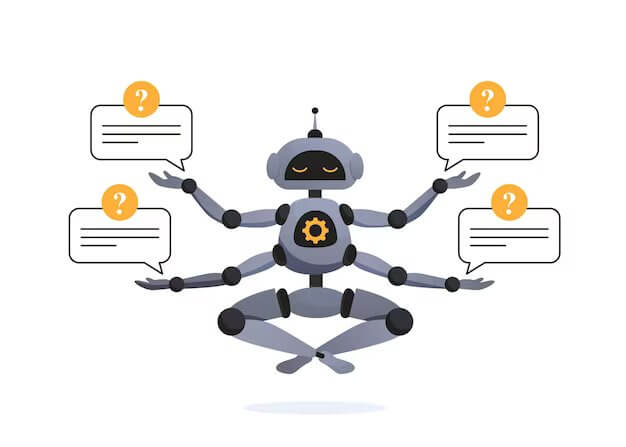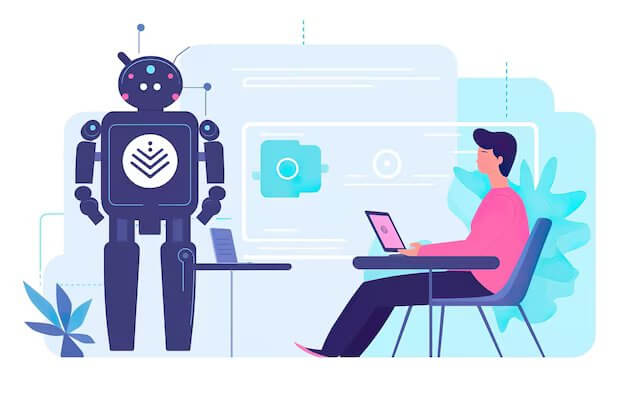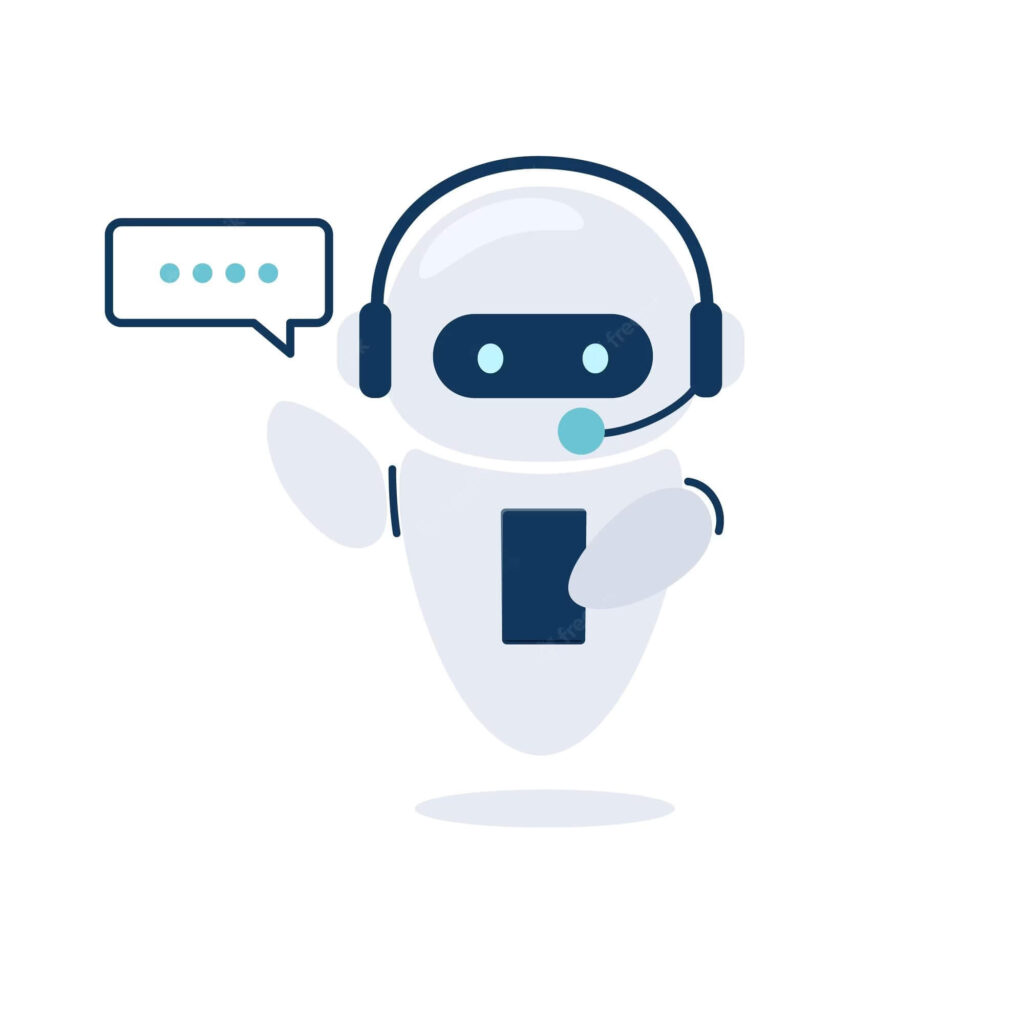AI’s Reverse Impact: Jobs Created and Rescued by Artificial Intelligence

In this age of rapid technological advancement, artificial intelligence (AI) has been a game-changer in many aspects of our lives. While concerns about AI replacing jobs have been prevalent, there’s another side to this story that often goes unnoticed – the jobs that AI has created and the ones it has rescued from obsolescence. So, let’s dive deep into the fascinating world of AI’s reverse impact on employment and explore how it’s shaping the job market of the future.
The Fear of Job Displacement
Before we unravel the positive side of AI, it’s essential to address the elephant in the room: the fear of job displacement. Many individuals worry that AI will render them jobless, especially in sectors that heavily rely on routine tasks. But is this fear justified?
AI, undoubtedly, can automate repetitive and rule-based tasks efficiently. This includes data entry, basic customer service, and even some aspects of manufacturing. However, this automation isn’t necessarily a doomsday scenario for employment. Instead, it paves the way for the creation of more meaningful and higher-value jobs.
Table 1: Jobs Vulnerable to Automation vs. Jobs Created by AI
| Jobs Vulnerable to Automation | Jobs Created by AI |
| Data Entry | AI Developer |
| Routine Customer Service | AI Ethics Specialist |
| Manufacturing Tasks | AI Trainer |
As shown in Table 1, while AI may displace certain jobs, it simultaneously fuels the demand for new roles. Let’s explore these newly emerging career opportunities.
AI Developer: Crafting the Future
Are you passionate about programming and innovation? If so, AI development might be your calling. AI developers are the architects behind the algorithms that power AI systems. They design, test, and refine these algorithms to ensure they function effectively. The demand for AI developers has surged exponentially in recent years, making it one of the most sought-after careers in the tech industry.
Why Choose AI Development?
- Competitive salaries and abundant job opportunities.
- The chance to work on cutting-edge technology.
- Contributing to AI solutions that benefit various industries.
AI Ethics Specialist: Guiding the Moral Compass
With great power comes great responsibility, and AI is no exception. As AI systems become increasingly integrated into our lives, ethical concerns arise. This is where AI ethics specialists step in. They navigate the complex terrain of AI ethics, ensuring that AI systems are developed and deployed in ways that align with our moral values and societal norms.
What Makes AI Ethics a Thriving Field?
- Addressing ethical dilemmas in AI, such as bias and privacy.
- Influencing the direction of AI development for the better.
- Opportunities for collaboration with policymakers and tech giants.
AI Trainer: Teaching Machines to Learn

AI’s ability to learn from data is at the heart of its success. However, these systems need human guidance to learn effectively. AI trainers are responsible for feeding AI algorithms with data, refining their learning processes, and ensuring they produce accurate results. This role is critical in fine-tuning AI models to perform tasks like image recognition or natural language processing.
Why Become an AI Trainer?
- Playing a pivotal role in improving AI accuracy.
- Opportunities to work with diverse datasets.
- Constant learning and adaptation in the dynamic field of AI.
Rescuing Traditional Jobs
While AI creates new career avenues, it also breathes new life into traditional jobs. How, you ask? Let’s take a closer look.
Transforming Healthcare
AI’s foray into healthcare has been transformative. Instead of replacing doctors and nurses, it complements their skills. AI-powered diagnostic tools assist medical professionals in making accurate diagnoses faster. This not only enhances patient care but also reduces the burden of excessive paperwork, allowing healthcare workers to focus on what truly matters – patient well-being.
Table 2: AI’s Impact on Healthcare
| Traditional Healthcare Roles | Enhanced by AI |
| Physicians | AI Diagnosis |
| Nurses | Data Analysis |
| Medical Researchers | Drug Discovery |
Empowering Creativity
AI doesn’t stop at crunching numbers and data. It delves into the realm of creativity. Artists, musicians, and writers are leveraging AI to augment their creative processes. AI-generated art, music, and even literature are becoming increasingly popular, adding a new dimension to the world of culture and entertainment.
How AI Augments Creativity?
- AI-generated content inspires human creativity.
- Automation of repetitive tasks, freeing artists to focus on innovation.
- Democratization of creativity, making it accessible to all.
A Glimpse into the Future

So, what does the future hold in this symbiotic relationship between AI and jobs? Will AI continue to be a job creator and savior?
The answer lies in our ability to adapt and harness the potential of AI. As AI technologies advance, we can expect even more job opportunities to emerge. The key lies in acquiring the right skills and staying attuned to the evolving landscape of AI.
In the not-so-distant future, AI could be working alongside us in various capacities, from personal assistants to research collaborators. It has the potential to elevate industries, improve our quality of life, and address pressing global challenges.
Final Words
As we wrap up our exploration of AI’s reverse impact on jobs, it’s crucial to recognize that we’re navigating uncharted waters. The synergy between humans and AI is a dynamic journey, and there’s no one-size-fits-all roadmap.
To thrive in this evolving landscape, individuals and organizations alike must foster a culture of adaptability and continuous learning. It’s not just about acquiring AI-related skills; it’s about embracing change and harnessing AI’s transformative potential.
The winds of change are blowing, and AI is at the helm. The future of work is not a static destination but a voyage into unexplored territories. AI is not the end of jobs; it’s the dawn of a new era where innovation, creativity, and collaboration reign supreme.
So, as we bid adieu to this discussion on AI’s reverse impact, ask yourself: Are you ready to set sail on this exciting journey? Will you be a passive observer of change, or will you be at the forefront of innovation, shaping the future of work?
The choice is yours, and the possibilities are limitless. Embrace AI’s reverse impact, and together, we’ll navigate these uncharted waters, forging a future where human potential and AI capabilities harmoniously coexist.
Frequently Asked Questions (FAQ) on AI’s Reverse Impact: Jobs Created and Rescued by Artificial Intelligence
Welcome to the FAQ section where we address common questions related to the impact of Artificial Intelligence (AI) on jobs and employment.
Q1: Is AI really creating more jobs than it displaces?
A1: Yes, AI is creating and rescuing jobs in addition to displacing certain roles. While AI automates routine tasks, it generates demand for jobs in AI development, ethics, training, and other emerging fields. It also enhances traditional jobs by making them more efficient, allowing humans to focus on value-added tasks.
Q2: What are some examples of jobs that AI has created?
A2: AI has given rise to jobs such as AI developers who design AI algorithms, AI ethics specialists who navigate ethical concerns, AI trainers responsible for teaching machines, and many more. Additionally, AI has augmented creativity in fields like art, music, and literature.
Q3: Will AI replace all human jobs in the future?
A3: No, AI is not poised to replace all human jobs. While it may automate certain tasks, it complements human skills and creates new roles. The future of work will involve a collaborative relationship between humans and AI, where humans focus on complex problem-solving and creative tasks.
Q4: How can individuals prepare for AI’s impact on jobs?
A4: To thrive in the AI-driven job market, individuals should focus on lifelong learning. Acquiring AI-related skills, staying updated with industry trends, and embracing adaptability are key. Enrolling in online courses, attending workshops, and pursuing certifications can be beneficial.
Q5: What is the role of governments and educational institutions in AI’s impact on jobs?
A5: Governments can foster a supportive environment for AI by implementing policies that encourage AI research, development, and ethical deployment. They can also invest in AI education and reskilling initiatives. Educational institutions should adapt curricula to include AI-related subjects to prepare students for the AI-powered future.
Q6: Is AI a threat to job security?
A6: AI is not inherently a threat to job security. However, it does emphasize the need for adaptability and continuous learning. Job security depends on an individual’s ability to acquire relevant skills and adapt to changing job requirements.
Q7: Can AI be used to enhance traditional jobs like healthcare and creative fields?
A7: Yes, AI can enhance traditional jobs significantly. In healthcare, AI assists in diagnosis and data analysis, improving patient care. In creative fields, it augments human creativity by automating repetitive tasks and providing inspiration for innovative ideas.
Q8: What is the future of work in the context of AI’s impact on jobs?
A8: The future of work involves a harmonious collaboration between humans and AI. AI will handle routine tasks, allowing humans to focus on higher-level thinking, creativity, and problem-solving. This partnership will drive innovation and efficiency across various industries.
Q9: How can businesses harness the potential of AI for job creation?
A9: Businesses can harness AI’s potential for job creation by investing in AI technology and training their workforce in AI-related skills. They should also be mindful of ethical considerations and ensure responsible AI deployment to build trust and support long-term job growth.
Q10: Is there a risk of AI perpetuating bias in job roles?
A10: Yes, there is a risk of bias in AI if not developed and monitored carefully. To mitigate this risk, organizations should prioritize fairness and transparency in AI algorithms and regularly audit them for biases. AI ethics specialists play a crucial role in addressing this challenge.